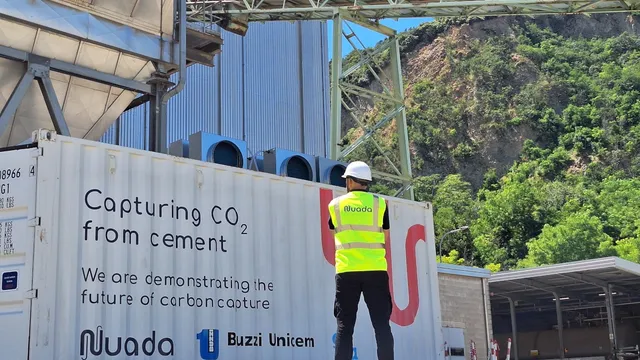
Nuada secures €2.5 million funding to advance carbon capture technology
2025-04-08 07:07- Nuada has become the first Northern Ireland company to secure funding from the EU's EIC Accelerator.
- The funding amounts to €2.5 million and aims to support the company’s carbon capture technology.
- Nuada’s success emphasizes its potential to advance industrial decarbonization and tackle sustainability challenges.
Express your sentiment!
Insights
In a significant achievement for Northern Ireland, a carbon capture technology company, Nuada, successfully secured €2.5 million in funding from the European Innovation Council (EIC) Accelerator. This marks a historic moment as Nuada is the first company from Northern Ireland to obtain such funding. The announcement came following a competitive selection process where over 1,200 proposals were submitted, and only 71 companies were chosen for the funding, making Nuada one of just five companies from the UK to receive this grant. The funding will support Nuada's mission to decarbonize heavy industries through their groundbreaking on-site capture technology. This innovative technology involves building energy-efficient filtration units designed to capture carbon dioxide (CO2) from industrial off-gases. This enables companies within hard-to-abate sectors to significantly reduce their carbon footprints in a cost-effective manner. The co-CEOs of Nuada, Jose Casaban and Conor Hamill, emphasized the importance of the funding in validating their technology and addressing the pressing need for sustainable growth in industrial processes. Nuada is not just focusing on innovation but is also actively working toward commercialization. With this funding, the company aims to enhance its operations and further develop its technology, which is already making strides in various industrial applications. The company has established partnerships with leading cement companies, a United States lime producer, and a prominent UK energy-from-waste company, indicating its growing influence in the industry. Since 2023, following a minority equity investment from BGF of £3.4 million, Nuada has expanded its team threefold to 42 employees. The company has also opened a state-of-the-art 18,000 sq ft manufacturing and development facility located in Newtownabbey. Through these developments and the recent funding award, Nuada is positioning itself as a pivotal player in advancing industrial decarbonization efforts across Europe and potentially beyond.
Contexts
The role of carbon capture technology (CCT) is becoming increasingly pivotal in the quest to mitigate climate change and reduce greenhouse gas emissions across various industries. CCT refers to the processes of capturing carbon dioxide (CO2) emissions at their source, typically from power plants or industrial facilities, and either reusing or storing it to prevent its release into the atmosphere. As industries face stringent regulations and the growing pressure to adopt sustainable practices, CCT represents a viable solution for achieving lower carbon footprints while maintaining operational efficiency. This technology has garnered attention for its potential impact on sectors such as energy, manufacturing, and transportation, with significant implications for economic growth and environmental sustainability. Within the energy sector, carbon capture technology is particularly transformative. Traditional fossil fuel-based power generation is a substantial source of global CO2 emissions. By integrating CCT, power plants can capture up to 90% of their CO2 output, thus drastically reducing their contribution to climate change. Additionally, the technology enables a smoother transition to renewable energy sources by ensuring that existing infrastructure can be retrofitted to comply with emission regulations. This adaptation not only preserves jobs in the fossil fuel industry but also supports the broader goal of transitioning to a more sustainable energy landscape without jeopardizing energy reliability. In manufacturing industries, carbon capture offers a pathway to decarbonize hard-to-abate sectors such as cement, steel, and chemical production, which are notoriously carbon-intensive. By capturing emissions at their source, manufacturers can continue producing essential materials while significantly lowering their emissions profile. Moreover, innovations in carbon utilization—where captured CO2 is repurposed for use in products like concrete or synthetic fuels—add an economic layer to this environmental initiative, paving the way for new markets and job opportunities within the circular economy framework. Lastly, the transportation sector also benefits from advancements in carbon capture, particularly with emerging technologies such as direct air capture that can help remove CO2 from ambient air. This technology could play a crucial role in achieving net-zero emissions and offsetting emissions from hard-to-electrify areas of transportation. As investment in carbon capture technology grows, it is essential for governments and industries to collaborate on developing supportive policies and strategies that encourage research, development, and widespread deployment of these innovations. Ultimately, the impact of carbon capture technology across various industries could be significant, not only contributing to national and global emissions reduction targets but also fostering economic resilience in a rapidly evolving job market.